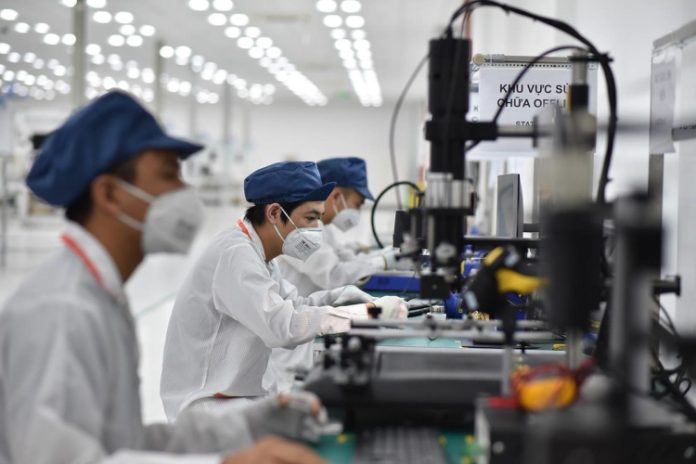The World Bank has ranked Vietnam in 11th place out of 12 Asian countries based on the quality of human resources. Vietnam’s overall rating is 3.76 out of 10.
South Korea is currently at the top of the list with 6.91 points followed by India with 5.76 and Malaysia with 5.59; Chung Ngoc Que Chi of the Ho Chi Minh City Technical and Economic College listed these numbers in a presentation at a forum on enhancing Vietnamese workers’ skills held in Hanoi over the weekend.
She also cited a survey by the World Bank and the Central Institute for Economic Management (CIEM) of 350 businesses in production and services in Hanoi, HCMC, and neighbouring provinces, which showed that 66 per cent of businesses employed foreign workers and 36 per cent of domestic businesses were dissatisfied with the quality of education and training of Vietnamese human resources.
Chi had also stated that Vietnam suffers not only from quantity, but quality as well. Many Vietnamese workers are still lacking in areas such as foreign language, IT skills, and the ability to utilise technology.
She concluded that the huge disparity in quality of such skills is due to issues and gaps between the country’s vocational education and the market’s requirements. In addition, Chi called for forging close ties between schools and businesses for training. Industry-academia cooperation would make it clear as to what the business market demands and academics can then adjust to provide said in-demand skills to students.
The ongoing trade war between US and China is causing a mass exodus of manufacturing from the latter. Despite this, reports have shown that businesses remain hesitant to relocate production to Vietnam due to this issue of of low quality human resources. These companies are instead heading to neighbouring nations within the region such as Thailand and Indonesia.
Nguyen Van Binh, head of the Central Economic Committee, said that Vietnam needs to create a significant change in awareness of human resource quality to achieve practical changes. He argued that the goals that are set for the country can only be achieved through quality human resources.
Prime Minister Nguyen Xuan Phuc listed three things that Vietnam needs to ensure to develop its human resource capabilities.
Firstly, vocational education should follow market trends and needs closely. Naturally, a balance between supply and demand for skilled workers need to be maintained. Additionally, policies should be enacted to ensure close links between the two entities to encourage cooperation and contribution to training.
Secondly, vocational education has to meet international standards so that students will be equipped with the latest necessary technical and soft skills to over come the challenges put forth by global economic integration.
Thirdly, the country needs to improve its forecasting ability to grasp and predict quickly the demands of businesses and the economy, he said. “Don’t provide training in things people don’t need.”
It is required to raise the awareness of society, families, students, businesses, and social organizations of the need for skilled human resources, he said. “Skills are very important. If they have skills, human workers will never become redundant even if robots are highly developed.”
As of now, only 12 per cent of Vietnam’s 57.5 million-strong workforce are considered to be “highly-skilled”. This is according to the recruitment firm, ManpowerGroup.






















